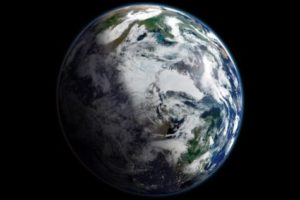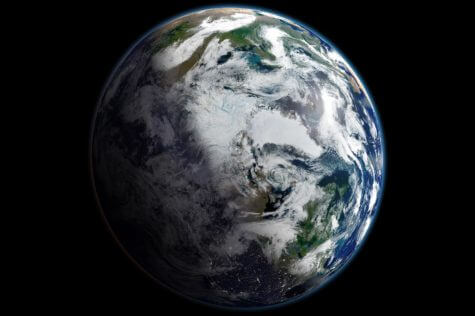BERKELEY, Calif. — Climate change may have detrimental effects on the health of the planet, but a new study finds it may also further widen the gap between the wealthy and poor in the United States.
Researchers at the University of California Berkeley consulted 116 climate change forecasts, in conjunction with economic analysis developed by scientists worldwide, to assess the impact that unmitigated climate change would have on a number of local outcomes, including crime, energy, labor, and mortality.

Using this data, they were able to create a county-by-county model that projected the end result of global warming in different areas by the end of the century.
Overall, the model’s findings are not pretty for those living in certain regions of the U.S.
Perhaps the most shocking finding is that the bottom third of counties in terms of wealth are projected to lose 20 percent of their earnings due to climate variability.
Meanwhile, states in the Pacific Northwest and New England would likely gain wealth.
Still, the U.S. would lose about 0.7 percent of its annual GDP for each additional Fahrenheit degree that the climate heats, which could spell disaster.
“Climate change is going to be like a huge transfer of wealth from some people to others,” says lead researcher Solomon Hsiang in a university news release. “This is kind of analogous to a tech boom in one region of the country and industry collapsing in another region. It’s going to make the current economic cleavages in this country even bigger.”
Regions in the South may experience particular economic declines, as rising sea levels could increase the incidence of cyclones and flooding, the researchers note.
The Midwest wouldn’t be spared either, as agricultural yields would likely decrease dramatically with a rise in temperature. Since the entire nation depends on the region for its food production, its shock waves could be felt across the U.S.
Other peripheral effects across the country could include higher demand on the electrical grid, an increase in mortalities, a decrease in hours worked, and an increase in crime.
The study’s findings were published last month in the journal Science.

It’s not climate change itself but redistributive consequences of political policies which will result in the increasing gap between rich and poor.
Why am I not surprised that this “study” came out of Berkeley.
You realize anthropogenic climate change is a hoax, right? Now that we got that straightened out. The real cause of an increased gap between the wealthy and the poor in the US is………the fractional reserve fiat currency federal reserve banking system. Thank you! Thank you very much. I’ll be here all week. Next.
Believing in global warming could cause you to wear a reflective dunce cap to direct infrared photons into space.